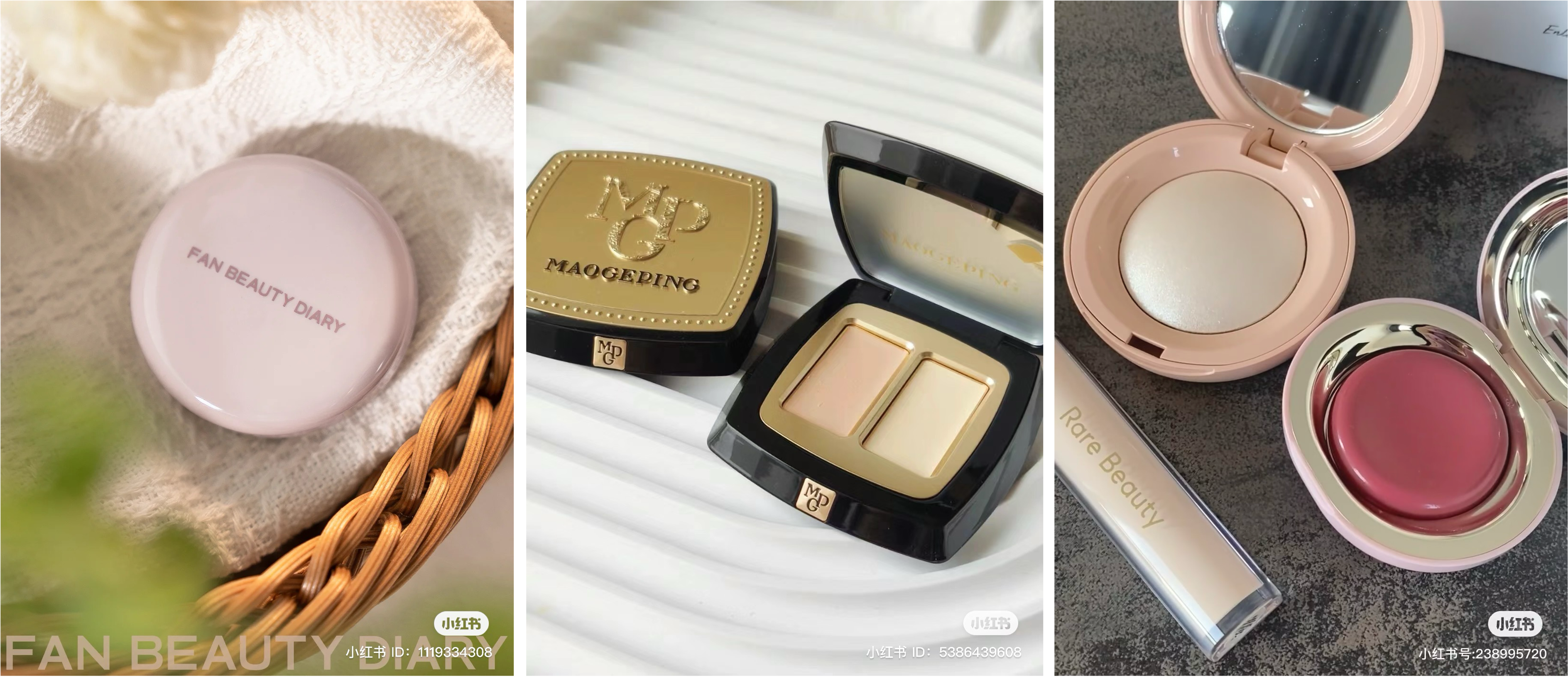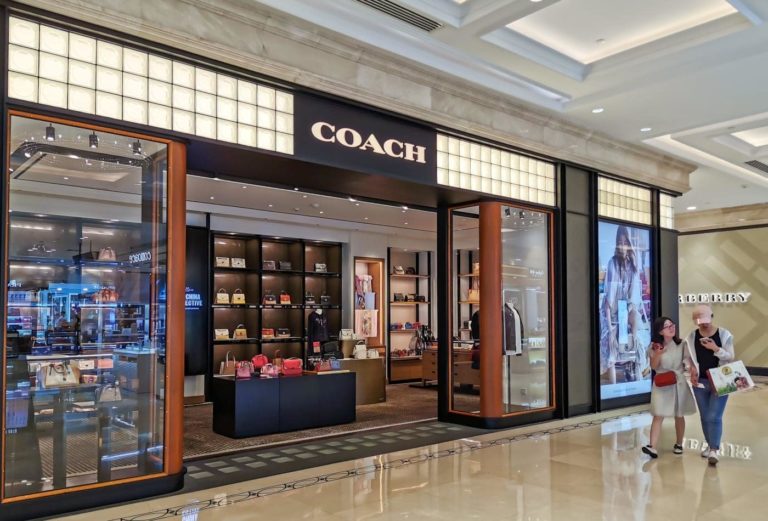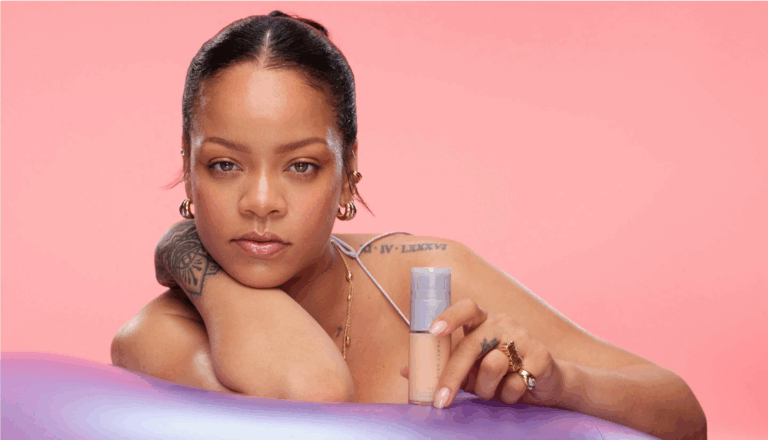The indie sector has swiftly emerged as a significant player in the beauty industry, boasting global sales worth USD 30.5 billion. This trend is evident in China, especially among young consumers in China. Brands including Fan Beauty and Rare Beauty have been gaining popularity due to the growing desire for individuality, a sense of belonging, and sophistication.
What it means to be an indie beauty brand
Indie beauty brands (独立美妆品牌), short for independent beauty brands, refer to those that operate independently from larger corporations or conglomerates. They prioritize innovation, authenticity, creativity, and uniqueness in their offerings relatively more compared to larger, non-indie brands. Moreover, many focus on specialized markets, cultivating a robust online presence, and actively engaging with their audience.
In China, many consumers are unclear about the term “indie beauty brand”. This is largely because they don’t put too much attention to whether the brand is independent or not. However, certain keywords resonate with them when it comes to indie beauty brands in China, shedding light on their success: community, consumer-oriented, and quality.
Download our report on Chinese beauty consumer pain points
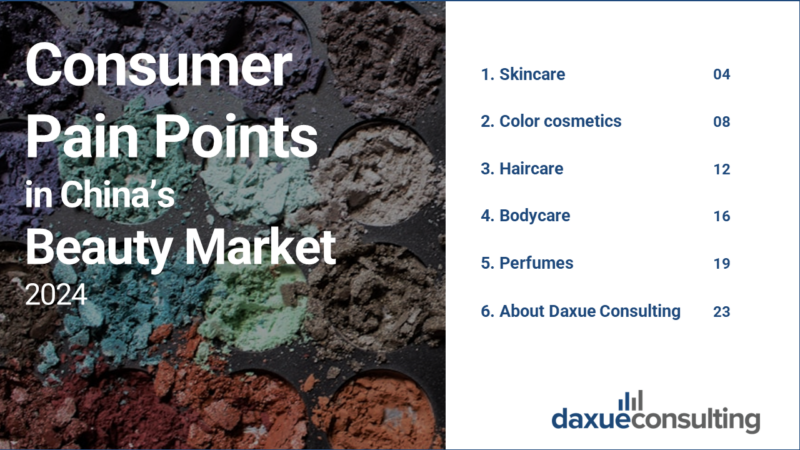
What drives the growth of China’s indie beauty brands
Community focus
Indie beauty brands in China are renowned for their ability to build strong communities and foster a sense of belonging among consumers, especially through social media platforms. By leveraging these platforms, brands not only increase their authenticity and foster trust but also engage with their audience and cultivate a loyal customer base.
For example, they create WeChat groups, grouping individuals based on their skin types and answering their questions. They also seek first-hand feedback on product usage to refine their offerings, encourage consumers to share their experiences and opinions on social media. This provides each individual with a platform to contribute to the community.
This community-centric approach has resonated profoundly with young consumers in China, who despite their diverse preferences and growing individualism, still seek a sense of belonging while expressing their unique opinions and identities.
Consumer-oriented approach to address unique needs
Indie beauty brands primarily cater to niche market consumers, addressing their specific needs and preferences. These brands pay greater attention to tailoring products or services to meet the demands of their consumers. Compared to large non-indie brands, their offerings are more attuned to the needs of their target customers, allowing for more direct application of feedback to product updates and enhancements. This has allowed Chinese consumers to be more interested, as each individual has unique problems that have not been fully satisfied by existing products in the market.
Appealing to Chinese consumers: Mid-range to high-end beauty brand positioning
Indie beauty brands often position themselves in the mid-range to high-end market segment among Chinese consumers, leveraging exquisite and distinctive packaging, as well as ingredients comparable to those used by luxury brands. While not all indie beauty brands follow this approach, many do.
In recent times, there has been a noticeable trend among indie beauty brands towards focusing more on brand quality and product design. High quality has emerged as a key attribute associated with indie beauty brands among Chinese consumers, appealing to those seeking premium beauty products.
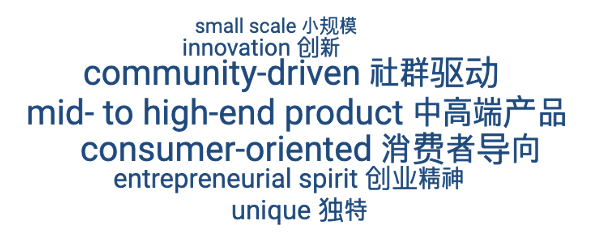
The founder’s influence on the growth of indie beauty brands
Celebrity or trusted founder endorsements significantly boost awareness and interest in indie beauty brands in China. Consumers are enticed by brands that pique their curiosity, often leading them to buy products because of the founder’s influence.
However, the founder’s endorsement isn’t everything. If the products fail to meet expectations, they may not garner as much attention. Consumers value brands where founders have a say in product development and listen to community feedback.
For example, Selena Gomez’s Rare Beauty has gained popularity in China due to her celebrity association and the wide range of blushers tailored to Asian skin. Yet, her impact would be limited if the product didn’t meet consumer expectations.
Popular indie beauty brands in China
Maogeping leads with professionalism and Guochao
Founded by renowned makeup artist Mao Geping in 2000, MAOGEPING specializes in ethnic makeup products. In addition to offering beauty products with a distinct Chinese style, the founder opened a beauty art school, driven by a passionate for spreading the art of makeup to the public.
MAOGEPING’s exceptional creativity and independent spirit not only mirror the founder’s passion for and preservation of traditional Chinese culture but also offer Chinese consumers with options tailored to Asian skin. This commitment to individuality and quality has earned the brand a loyal consumer base in the market.
Recently, the brand took a step further by filing an application for an initial public offering (IPO) with the Hong Kong Stock Exchange, marking a new stage in its development as an indie brand and laying a solid foundation for future growth and expansion.
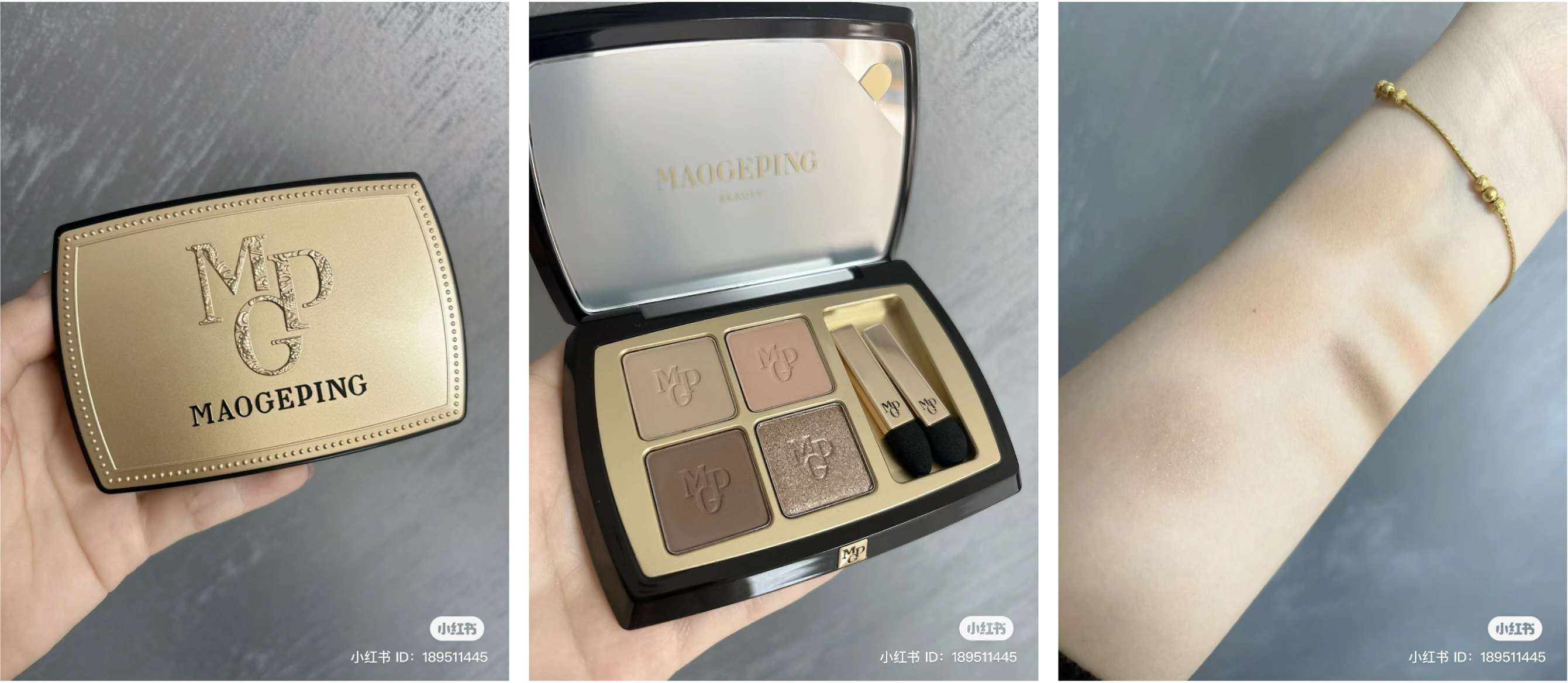
The rise of Fan Beauty – without Fan Bingbing?
Founded by the Chinese famous actress Fan Bingbing, Fan Beauty has garnered a lot of attention since its inception. Despite Fan Bingbing’s tax crisis in the second year, Fan Beauty still garnered significant attention with its face masks. In April 2019, Fan Beauty launched the Sea Grape Gel Moisturizing Face Mask in Hong Kong, selling out 50,000 pieces within the month. In 2021, Fan Bingbing terminated the brand’s cooperation with the original company and formally reclaimed the right to operate the brand.
Despite initial skepticism, as Fan Beauty continues to set new sales records for its products, it has managed to break through the stereotype of relying solely on Fan Bingbing for its success and has firmly established itself in the marketplace through its own competitiveness. From November 2021 to October 2022, Fan Beauty Secret sales reached RMB 306 million on Tmall. In the Double Eleven in China in 2023, it even achieved a remarkable 73% year-on-year increase in omni-channel Gross Merchandise Volume (GMV).
Fan Beauty excels not only in whitening, repairing, anti-wrinkle, firming, and nourishing masks but also in ongoing product innovation. The brand is expanding its offerings into sunscreen, body care, and perfume fragrances, aiming to create a comprehensive product portfolio.
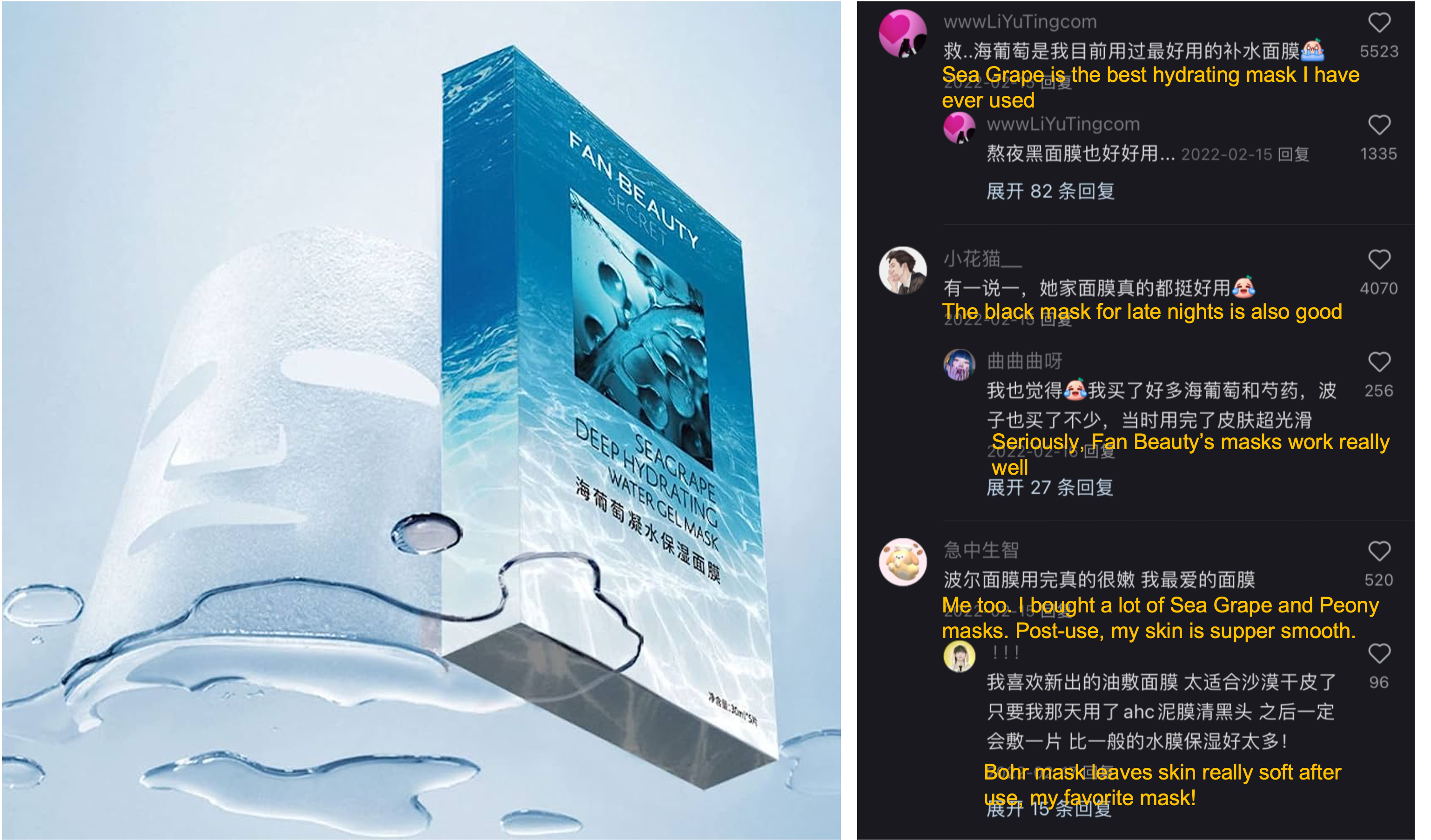
Inoherb: Bridging heritage and innovation through TCM
As the clean beauty movement gains momentum, an increasing number of skincare brands are turning to traditional Chinese medicine for chemical-free yet effective natural ingredients. Founded in 2000 by an individual from a family of traditional Chinese medicine (TCM) practitioners, Inoherb uses Chinese herbs in its formulations. The brand is committed to blending TCM herbal beauty with modern skincare technology, offering consumers natural, healthy, and effective skincare solutions. Chinese herbs, integral to Chinese culture, are marketed as non-toxic and “all-natural”, appealing to many Chinese millennial shoppers. Deeply rooted in local culture, Inoherb refines the essence of Chinese medicine to create a unique product line that meets the needs of consumers seeking natural beauty solutions.
Challenges indie beauty brands face
Even though the beauty industry is booming, due to the competitive nature of the market, many indie beauty brands still need help to flourish. Outside financing and investment support can provide these brands with the financial backing they need to expand production, explore new markets, and strengthen marketing.
In addition to financial support, help with research and development is vital. Technical support from professional organizations and industry insights can help indie brands stay competitive in the product development process, especially for brands that gain market share through product ingredients. By constantly innovating and improving their products, indie brands can enhance their product quality and features to consistently meet consumer needs.
Rising stars: The emergence of China’s indie beauty brands
- In the past, indie beauty brands did not enjoy a significant following. However, their community-centered, consumer-driven approach, and mid- to end-range positioning have raised interest, especially among young consumers in China.
- While many Chinese consumers are unclear about the term “indie beauty brand”, keywords such as community, consumer-oriented, and quality resonate with them, shedding light on the success of these brands.
- Mao Geping as a professional makeup artist created the eponymous brand, relying on a good reputation, professionalism is loved by consumers, Guochao trend is to strengthen the brand’s popularity.
- The founder’s role holds relatively less significance for Chinese consumers in indie beauty brands. While association with a founder matters, it’s not a top priority. Chinese consumers prioritize product quality, community engagement, and individuality over brand independence or the founder’s reputation.
- Fan Beauty ascended alongside Fan Bingbing’s fame, transitioning into an indie brand following a change in ownership. Time and sales have affirmed that product quality stands as the cornerstone of the brand’s success.
- Inoherb utilizes Traditional Chinese Medicine ingredients, blending traditional methods with modern technology to offer consumers high-quality clean beauty products.
- Despite the thriving beauty industry, many indie brands require external financial backing and technical assistance to remain competitive and meet consumer demands.



